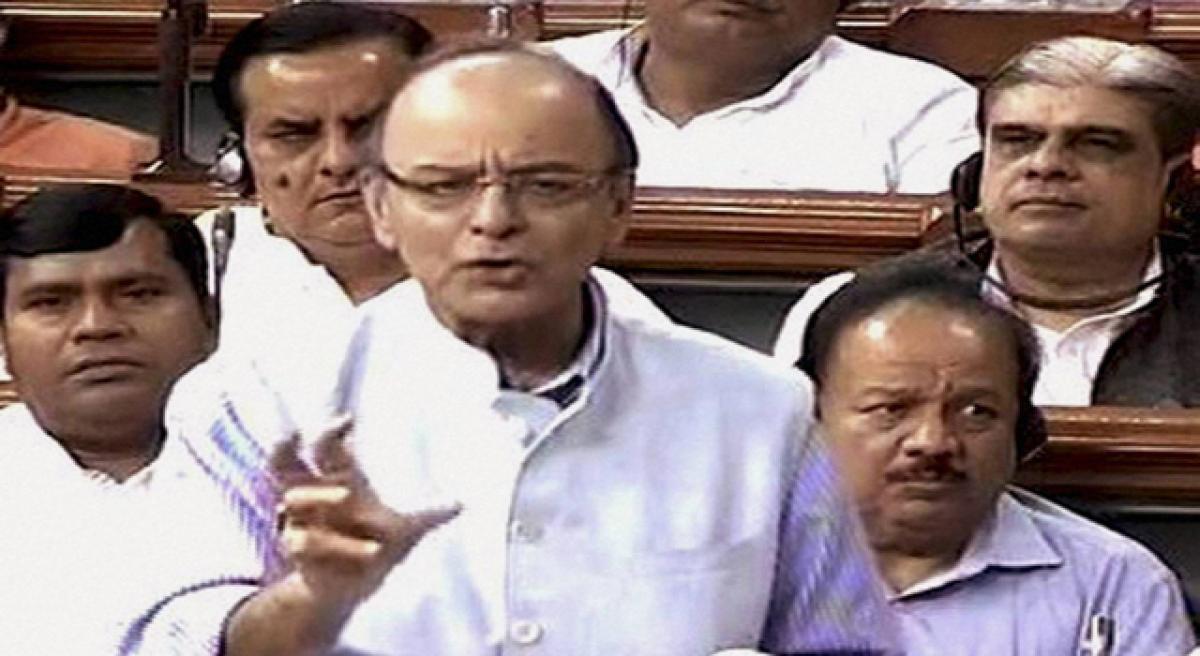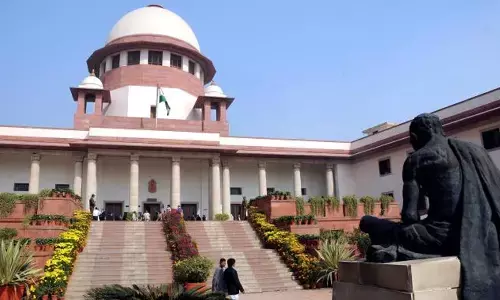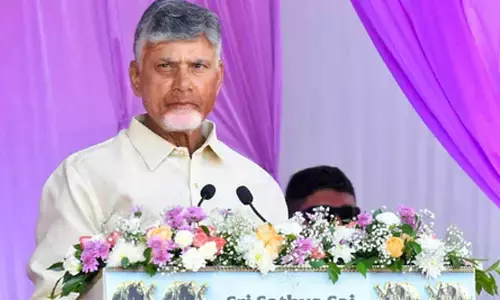We need an optimal rate: Jaitley

Setting a target of April 1, 2017 for rollout of the Goods and Services Tax, the government on Thursday unveiled a detailed roadmap for its implementation and said it is aiming for an \"optimal\" rate of taxation though the final decision will be taken by the GST Council.
New Delhi: Setting a target of April 1, 2017 for rollout of the Goods and Services Tax, the government on Thursday unveiled a detailed roadmap for its implementation and said it is aiming for an "optimal" rate of taxation though the final decision will be taken by the GST Council.
"What we need is an optimal (GST) rate," Finance Minister Arun Jaitley said while addressing a press conference a day after the Rajya Sabha approved the historic Constitution Amendment Bill, paving way for a complete overhaul of the indirect tax regime in the country.
Once implemented, the GST will subsume various taxes including excise, services tax, octroi and other levies and the proceeds will be shared between the Centre and states. On what would be the GST rate, Jaitley said the GST Council, which will comprise representatives of the Centre and states, will take a view and "draw a balance" taking into account the revenue requirements and the need to keep the tax rates low.
Talking about the roadmap for the GST rollout, Revenue Secretary Hasmukh Adhia said the government is looking at April 1, 2017 as the target date for implementation. "Within the next 30 days, we expect 50 per cent of the states -- about 16 -- to approve the Constitution Amendment Bill," he said.
The Bill, which was cleared by the Rajya Sabha on Wednesday night, is likely to be approved by the Lok Sabha this week after incorporating changes made by the Upper House. Jaitley said the government is working to roll out the GST as "reasonably quick" as possible. "It is always good to set a stiff target," Jaitley said when asked about the April 2017 deadline.
As regards the impact of GST rollout on inflation, Jaitley said over the years, the tax rates will come down and hence the prices of many commodities will also decline. "Over the long term, tax rates will come down, and if tax rates come down then it is natural that many commodities will see lowering of prices.
In the coming days, we will try that sooner we complete the roadmap and implement it," he said. The Finance Minister said once GST is rolled out, doing business in India would be easier and it would help a large body of traders, business people and also the citizens.
Jaitley said state governments of all political parties were overwhelmingly in support of the GST legislation and the Centre has held dialogues with almost all of them. "In the last phases of the dialogue, we were accommodative of various views but without compromising on the fundamentals of the bill," he said, adding the government will bring the subsequent legislations in the next session of Parliament.
As regards the Congress demand of keeping the GST rate low at 18 per cent, Jaitley said states need revenue to carry on their own programme, while the Centre would need funds to compensate the states.
An "unreasonable" cap would increase the revenue deficit and a Finance Minister cannot afford to do that, he said. "There is a difference between being responsible at present and being responsible in past. A present Finance Minister cannot say that you collect less revenue but increase your spending," Jaitley said when asked about former finance minister P Chidambaram's demand that GST rate should be 18 per cent.
Asked if the tax rate would be over 18 per cent in the GST regime, Jaitley said the rates would come down from the present incidence of between 27-32 per cent. "The final call is to be taken by the GST Council". Asked if Tamil Nadu will come on board for GST implementation as AIADMK members walked out of Rajya Sabha before voting, Jaitley said India has political parties which are extremely responsible.
"I am sure everybody will comply with ...what the legal structure is. I must say in all fairness that the Tamil Nadu government has represented in almost every meeting of the empowered committee. They have voiced their reservations consistently but at the same time they place an active and a positive role in the meetings itself," he added.














